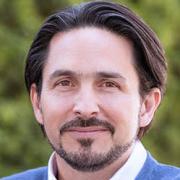Research Updates
Updated January 2025
During the grant period, we launched data collection for the California Abundant Birth Project (CA-ABP) evaluation study, including baseline and third trimester surveys, and completed 12 informant interviews to assess program implementation. We solicited feedback from community experts and design session focus group participants throughout to ensure research efforts are informed by community members’ perspectives. Preliminary analysis indicates a balance at randomization in demographics variables and outcomes. Future analysis will explore the impact of ABP on adverse pregnancy outcomes, mental health and wellbeing. We also identified barriers to implementing CA-ABP, including uneven capacity at partner organizations and difficulties in accessing the program.
Proposed Research and Background
Pregnancy is a critical time for families due to exposure to stress that can lead to adverse birth and long-term health outcomes. In the U.S., Black pregnant people are two to three times more likely to experience complications during pregnancy and die from these complications in comparison to white pregnant people. Structural racism is the root cause of these inequities which have been exacerbated during the COVID-19 pandemic. There has been a call to address the impact of structural racism on adverse birth outcomes by addressing economic inequality during pregnancy and across the life course, to advance maternal and infant health equity for Black communities.
The Abundant Birth Project (ABP) California (CA) Expansion is a guaranteed income program for pregnant people at greatest risk of birth inequities in five California counties (San Francisco, Alameda, Contra Costa, Riverside, and Los Angeles), funded by the State of California, municipal governments, and philanthropic foundations. ABP will provide unconditional, monthly income during pregnancy and postpartum to 725 randomly selected participants, with the goal of curbing financial stress and promoting healthy pregnancy outcomes.
The goal of this project is to evaluate the ABP CA Expansion in three San Francisco Bay Area Counties (San Francisco, Alameda, and Contra Costa). The 3 county sites will recruit 250 participants to the ABP program. These community and governmental organizations have partnered with our team at UC Berkeley, UC Davis and UCSF to design and implement a rigorous evaluation of the ABP expansion. The ABP evaluation team will recruit participants at a 1:1.5 ratio of ABP program: control group for an expected sample size of N=500 across the Bay Area counties. We will use a community-driven approach to evaluate the implementation and impact of providing unconditional income on improving financial and food security, and mental wellness among Black people.
Collaborators
- UC Davis
- UCSF
- Expecting Justice
- County of LA Public Health
- Richmond Rapid Response Fund
- Alameda County Dept of Public Health Family Health Services
- Riverside Community Health Foundation






